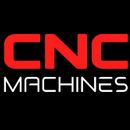Considering a Career as a CNC Machinist? Here’s What You Need to Know

Considering a Career as a CNC Machinist? Here’s What You Need to Know
As manufacturing technology continues to evolve, the role of the CNC (Computer Numerical Control) machinist has become increasingly vital in producing high-quality parts and products across various industries. If you're considering a career as a CNC machinist, this article will provide insights into what the job entails, how to acquire the necessary skills, the industries you can work in, and the future of CNC machining.
What Does a CNC Machinist Do?
A CNC machinist operates and manages CNC machines, which are automated tools controlled by computers. These machines create precise parts and components by cutting, shaping, and milling materials such as metal, plastic, and wood.
Key Responsibilities:
- Programming CNC Machines: Writing and inputting code to instruct the machine on how to perform specific tasks.
- Setting Up Machines: Preparing the machine for operation by installing tools and fixtures and ensuring proper calibration.
- Monitoring Production: Overseeing the machining process to ensure quality standards are met and making adjustments as needed.
- Quality Control: Inspecting finished products for precision and adherence to specifications using tools like calipers and gauges.
How to Learn the Skills and Trade of CNC Machining
Education and Training Options:
- Vocational Schools and Community Colleges: Many institutions offer certificate programs or associate degrees in CNC machining or manufacturing technology.
- Apprenticeships: Participating in an apprenticeship program provides hands-on training under the supervision of experienced machinists.
- Online Courses: Various platforms offer online courses in CNC programming, operation, and machining techniques.
- On-the-Job Training: Some employers provide training programs for new hires to learn the necessary skills.
Essential Skills to Develop:
- Technical Proficiency: Understanding how to operate and program CNC machines.
- Mathematical Skills: Proficiency in geometry and algebra for precise measurements and calculations.
- Attention to Detail: Precision is crucial in machining, requiring meticulous attention to specifications and quality.
Industries That Employ CNC Machinists
CNC machinists are in demand across a variety of industries, including:
| Industry | Description |
|---|---|
| Aerospace | Manufacturing parts for aircraft and spacecraft. |
| Automotive | Producing engine components, chassis, and frames. |
| Medical Devices | Creating surgical instruments and prosthetics. |
| Construction | Fabricating components for buildings and infrastructure. |
| Consumer Electronics | Manufacturing housings and circuit boards. |
| Machinery and Equipment | Producing parts for heavy machinery and industrial equipment. |
Benefits of Making Products in the USA
Producing goods in the USA has several advantages, including:
- Quality Control: Manufacturing in the U.S. often means adhering to strict quality standards, leading to higher quality products.
- Local Jobs: Supporting domestic manufacturing helps create jobs and strengthen local economies.
- Reduced Lead Times: Manufacturing closer to the end consumer can decrease shipping times and costs.
Demand for CNC Machinists in the USA
The demand for skilled CNC machinists is projected to grow significantly in the coming years. As industries continue to modernize and automate, the need for qualified machinists who can operate advanced CNC machines is increasing. According to the Bureau of Labor Statistics, employment of machinists is expected to grow by about 3% from 2021 to 2031, which is about as fast as the average for all occupations.
Technologies CNC Machinists Work With
CNC machinists utilize various technologies to enhance their capabilities and improve production efficiency:
- CNC Milling Machines: Used for cutting and shaping materials in multiple directions.
- CNC Lathes: Primarily for creating cylindrical parts through rotating workpieces.
- 3D Printers: Allowing for rapid prototyping and production of complex shapes.
- Laser Cutters: For precise cutting of various materials.
- CAD/CAM Software: Essential for designing parts and programming CNC machines.
The Blend Between Machine and Computer
CNC machining represents a significant blend of traditional craftsmanship and modern technology. By integrating computers into the machining process, CNC machinists can produce intricate parts with high precision and repeatability. This synergy enhances productivity and allows for the production of complex components that would be difficult or impossible to achieve with manual machining methods.
The Future of CNC Machining
The future of CNC machining is bright, with continuous advancements in technology leading to improved processes and capabilities. Key trends include:
- Automation and Robotics: Increased integration of robotics will enhance efficiency and reduce labor costs.
- Smart Manufacturing: The use of IoT (Internet of Things) technology will allow for real-time monitoring and data analysis, improving production efficiency.
- Sustainability: A focus on sustainable practices, including energy-efficient machines and recycling materials, will shape the industry.
Conclusion
Becoming a CNC machinist offers a rewarding career path with numerous opportunities for growth and advancement. By understanding the skills required, the industries involved, and the future trends in CNC machining, you can position yourself for success in this dynamic field. With increasing demand and the evolution of technology, a career in CNC machining is not only viable but promising, providing a pathway to contribute to innovative manufacturing processes in the USA and beyond.


